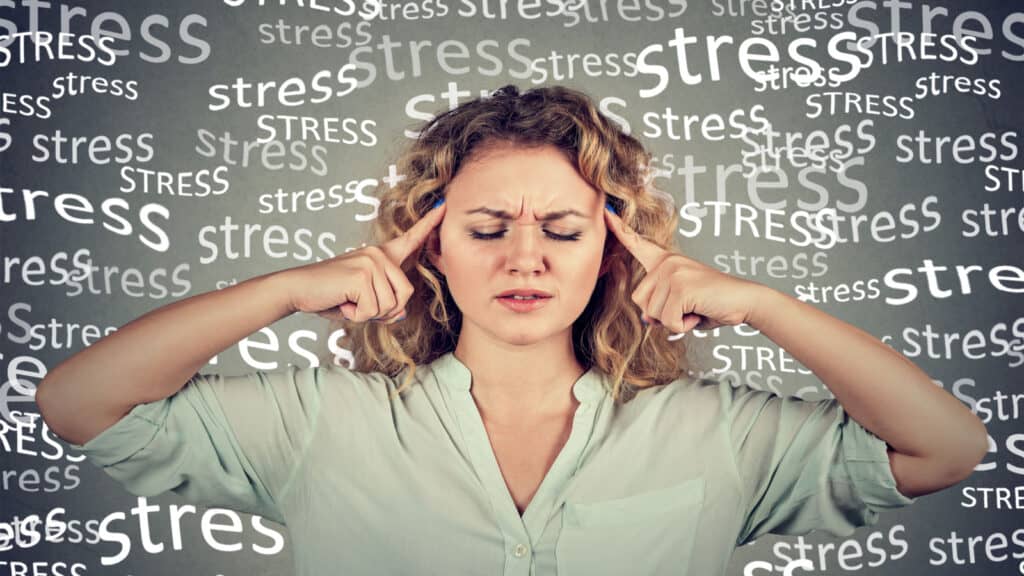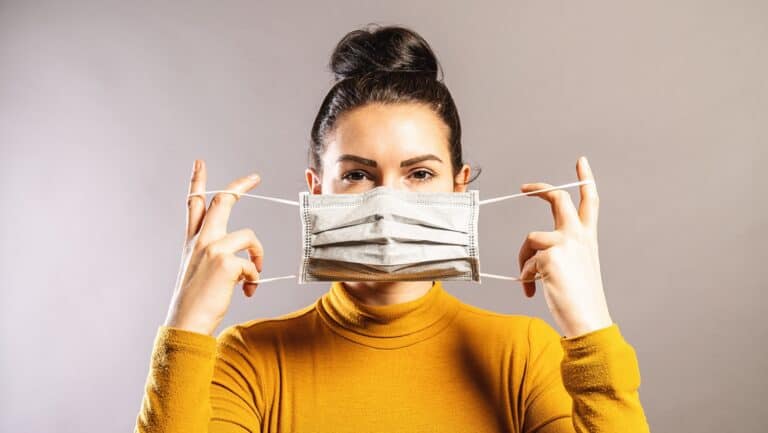The Top 13 Things That Keep Americans Up at Night
What’s on your mind when you’re tossing and turning at 2:00 AM?
In today’s fast-paced world, Americans are finding it increasingly difficult to get a good night’s sleep. Several surveys shed light on the primary concerns that are causing sleepless nights across the nation.
Let’s explore the top 13 issues that are keeping Americans up when they should be peacefully snoozing.
1. Cost of Living

The rising cost of living has become the foremost concern for Americans, with a striking majority reporting it as their most significant financial worry. According to a 2025 survey by the CFP Board, 89 % of U.S. adults say they are worried about the cost of living, and 87 % cite inflation and price increases as a major worry.
Nearly two-thirds (63 %) say they are worried about being able to purchase necessities such as food and clothing, and 55 % are concerned about paying their rent or mortgage.
Meanwhile, according to a Allianz Life Insurance Company of North America 2025 study, 71 % of Americans expect inflation to worsen over the next 12 months, and 75 % believe new tariffs will increase their cost-of-living expenses.
These financial pressures are taking a real toll on sleep. Many Americans report lying awake worrying how to make ends meet: juggling rising housing costs, burgeoning grocery bills, steadily increasing utility and healthcare expenses—all while their paychecks remain stagnant or grow only modestly.
The worry is not only for today. A large share of people are thinking months or years ahead, anxious about how they’ll keep pace with inflation, save for the future, maintain housing affordability, and preserve their financial stability. That long-term strain—uncertainty about whether what’s affordable now will remain so—is fueling restless nights across demographic groups.
2. Gun Violence in America

Gun violence continues to be a major source of concern, with plenty of Americans losing sleep over this issue. The frequency of mass shootings and the ongoing debate over gun control measures have left many feeling vulnerable and anxious about their safety and the safety of their loved ones.
Many parents with school-aged children are likely to agonize over sending their children to school where they may not be safe. And this issue further ties into other worries, such as the election.
3. 2026 Midterm Elections

As the 2026 mid-term elections approach, 56% of Americans report losing sleep over politics and related outcomes.
This is not simply a routine election-year anxiety—it reflects a broader rise in worry levels across policy, governance and societal stability. The deeply polarized political climate and uncertainty about how electoral results will shape everything from democratic norms to economic and social policies are contributing to elevated stress and disrupted sleep nationwide.
4. Fear of Immigration-Enforcement Stress

Recent years have seen a marked increase in stress and sleep-disruption related to immigration enforcement, especially among immigrant communities and those in mixed-status families. A 2025 survey by Kaiser Family Foundation found that about 41 % of lawfully present immigrants now worry that they or a family member could be detained or deported—up from 26 % in 2023.
This fear is not only about legal status; it is also tied to everyday life: roughly one-third of immigrants said they were experiencing worsened health conditions, increased anxiety, or problems eating or sleeping since the beginning of the year.
Therapists working with Latinx and immigrant populations report a sharp spike in insomnia, nightmares, and hyper-vigilance triggered by fears of raids and detentions. One clinician noted that among children as young as six, clients are now exhibiting fear that their parents might be taken away—leading to disrupted sleep, nightmares and chronic anxiety.
The implications extend beyond the directly targeted families: the climate of enforcement and unpredictability is spreading to broader communities, increasing stress levels and worsening feelings of insecurity about safety and stability.
Because sleep is vulnerable to stress, fear and uncertainty, the surge in immigration-enforcement fears can legitimately be said to contribute to the broader national anxiety that keeps people awake at night.
6. Fear of the Loss of Democracy

A growing number of Americans say they are losing sleep over the threat to the country’s democratic system. In early 2025, approximately 77 % of U.S. adults said the issues dividing the nation posed a “serious threat” to the future of American democracy.
While many still believe core democratic functions (such as the right to protest, a free press, and fair elections) are working at some level, a striking 73 % of respondents said they felt there was a serious threat to democracy in the U.S. compared with just 26 % who said there was not.
What’s more, about 38 % of Americans think it is “very or somewhat likely” that in the next ten years the U.S. will no longer be a democracy.
This rising anxiety is fed by a combination of factors:
- Deep political polarization and the sense that opposing “the other side” is not just a political difference but an existential threat.
- Widespread belief that elected leaders are not acting in line with the public’s views—only 47 % of Americans agreed that “the nation’s leaders reflect the views of the public when making decisions.”
- Concerns about institutional erosion: for example, doubts about the effectiveness of Congress and political parties, which were rated very poorly in one survey (just 34 % said the parties were effective).
In a sleep-loss context, these anxieties translate into a pervasive sense of fear and uncertainty: Are the rules going to hold? Will the next election be fair? Will the checks and balances fail? The result: more nights spent replaying “what-if” scenarios rather than drifting into rest.
7. War

Global conflicts and the threat of war are now causing tension for an estimated 84% of Americans, who say they are at least somewhat worried about current international disputes and their potential fallout.
The ongoing war in Ukraine, escalating tensions in the Middle East (especially regarding Iran and Israel) and other international flash-points have raised fears about global stability and the possibility of wider or even nuclear-scale conflicts. For example, 43% of U.S. adults are “extremely or very concerned” that Ukraine could be defeated in its war with Russia. This broader anxiety extends beyond geopolitics — people are worrying about how war can affect them personally: safety, the cost of living, travel disruption, supply-chain shocks, and more.
8. Climate Change

Environmental concerns are keeping many Americans awake at night. The increasing frequency and severity of natural disasters, along with worries about long-term environmental sustainability, are contributing to anxiety about the future of our planet.
Many coastal cities are expected to be underwater within the next decade or two. So people who live by the beach might be especially overwhelmed by this concern.
9. Personal Health & Healthcare

Health concerns are increasingly keeping Americans awake. In a 2025 poll by the American Psychiatric Association (APA), 59% of respondents said their health—or their family’s health—is a source of anxiety.
Meanwhile, findings from the National Sleep Foundation show a large majority of adults recognize the importance of sleep, yet more than half aren’t getting quality rest—suggesting heightened worry may be part of the gap.
Key stressors include:
- Anxiety about chronic conditions, emerging illnesses and long-term health risks, especially in the wake of the pandemic.
- Frustration over access to care, insurance coverage and medical costs. The burden of rising insurance premiums, co-pays and potential denial of claims is contributing to mental strain and sleepless nights.
- A ripple-effect of health-system stress: uncertainty about waiting times, quality of care and whether one will receive timely diagnosis or treatment adds to pre‐bedtime rumination.
These worries don’t just affect people already living with disease. They extend to anyone who fears losing their health, being unable to afford needed treatment, or watching loved ones struggle. That climate of uncertainty and financial exposure makes relaxation before sleep harder to achieve.
In short, the intersection of health risk, system fragility and cost burden is making health-related worries a meaningful driver of poor sleep for many Americans in 2025.
10. Financial Security

Beyond the general cost of living, specific financial concerns such as job security, retirement savings, and debt are keeping Americans up at night. The uncertainty of the economic landscape and personal financial stability are major contributors to sleep-disrupting stress.
This will likely always be true unless you’re a millionaire. However, things are particularly tight for many people right now. The majority of Gen Z do not even feel financially secure enough to invest in their retirement, which only means more financial insecurity later in life.
READ: How to stay afloat when the economy falls apart
11. Social Media and Technology

The pervasive nature of social media and technology is impacting sleep quality for many Americans. Constant connectivity, information overload, and the fear of missing out (FOMO) are leading to difficulty disconnecting and winding down before bedtime.
It can help to go to bed without your phone, tablet, or computer. In fact, 50% of Americans report trying to limit screen time leading up to bed. But even doing this can’t always remedy how our minds race at night.
READ: 15 Ways Quitting Social Media Revealed What I Was Really Missing
12. Work-Related Stress

Job pressures, long hours, and work-life balance issues are significant sleep disruptors for many Americans. The blurring of boundaries between work and personal life, especially with the rise of remote work, has made it challenging for individuals to “switch off” at night.
When there is no boundary between work and home, it can feel like you’re always on the clock. This can raise stress levels, making it tougher to relax and fall asleep or stay asleep.
13. Family and Relationship Concerns

Interpersonal relationships and family dynamics are also contributing to sleepless nights. Worries about children’s well-being, marital issues, and caring for aging parents are among the personal concerns that can lead to restless nights and sleep deprivation.
This might be particularly prevalent among the “Sandwich Generation” who are caring for kids and adults simultaneously. These individuals tend to feel overwhelmed by how many people rely on them.
Too Many Are Tired, But Not Sleeping

One of the toughest aspects of this topic is that the less people sleep, the less mentally, emotionally, and physically equipped they are to face these life challenges and worries.
Addressing these concerns and developing healthy sleep habits is crucial for improving overall well-being and quality of life. It’s important to prioritize self-care and seek support when needed to ensure restful and rejuvenating sleep.
It seems like the more tired someone is over financial worries, societal issues, and personal problems, the less they can sleep, making for a vicious cycle.
READ: Is Stress Stealing Your Sleep? Here’s How to Take It Back
Juggling 2-3 Jobs: Is This The American Dream or Nightmare?

In the U.S., more people are juggling multiple jobs, often due to financial pressures like inflation and stagnant wages. But who is most impacted, and why? How many jobs are you juggling? And why?
READ: Juggling 2-3 Jobs: Is This The American Dream or Nightmare?
Can The Human Body Adapt To The Rising Heat? And What Are We Doing If We Can’t?

As climate change intensifies, the human body’s ability to adapt to rising temperatures is becoming a critical concern. According to Dr. Camilo Mora, an expert on heat’s effects on human physiology, “The human body has remarkable adaptability to heat, but there are limits to how much we can physiologically adapt to rising temperatures due to climate change.” This introduction explores the extent of our physiological adaptations, the challenges we face as global temperatures climb, and the potential consequences if our bodies fail to keep pace with environmental changes.
READ: Can The Human Body Adapt To The Rising Heat? And What Are We Doing If We Can’t?







